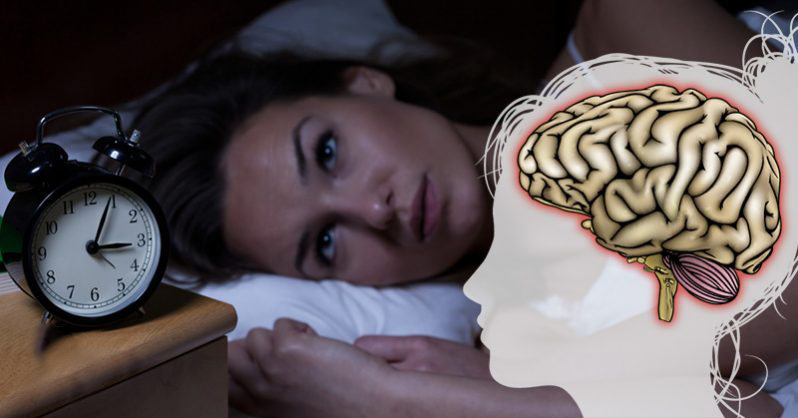Introduction:
Sleep is a vital aspect of our overall health and well-being, allowing our bodies to rest, repair, and rejuvenate. However, for many individuals, achieving restful sleep can be challenging due to a sleep disorder known as insomnia. In this comprehensive guide, we will delve into the various aspects of sleep insomnia, including its definition, causes, symptoms, diagnosis, treatment options, and strategies for improving sleep quality.
Table of Contents:
I. Understanding Insomnia
A. Definition of Insomnia
B. Types of Insomnia
C. Prevalence and Impact
II. Causes of Insomnia
A. Primary Insomnia
B. Secondary Insomnia
C. Risk Factors
III. Symptoms and Effects of Insomnia
A. Sleep-related Symptoms
B. Daytime Symptoms and Impacts
C. Consequences on Health and Well-being
IV. Diagnosing Insomnia
A. Medical Evaluation and Sleep History
B. Sleep Diary and Questionnaires
C. Polysomnography and Other Tests
V. Treatment Options for Insomnia
A. Non-Pharmacological Approaches
1. Sleep Hygiene Practices
2. Cognitive-Behavioral Therapy for Insomnia (CBT-I)
3. Relaxation Techniques
B. Pharmacological Treatments
1. Prescription Medications
2. Over-the-Counter Sleep Aids
C. Complementary and Alternative Therapies
1. Herbal Supplements
2. Mind-Body Practices
VI. Strategies to Improve Sleep Quality
A. Establishing a Consistent Sleep Schedule
B. Creating a Sleep-Friendly Environment
C. Managing Stress and Anxiety
D. Limiting Stimulants and Electronic Devices
E. Incorporating Exercise and Physical Activity
F. Seeking Professional Help
VII. Exploring the Role of CBD in Insomnia
A. Understanding CBD and its Potential Effects
B. Research on CBD and Sleep Insomnia
C. Considerations for Using CBD as a Sleep Aid
VIII. Lifestyle Modifications for Better Sleep
A. Sleep Hygiene Practices
B. Stress Management Techniques
C. Cognitive and Behavioral Strategies
D. Relaxation Exercises and Mindfulness
IX. Seeking Professional Help for Insomnia
A. Consulting with Healthcare Providers
B. Sleep Specialists and Sleep Clinics
C. When to Seek Medical Attention
X. Conclusion
I. Understanding Insomnia:
This section provides a comprehensive definition of insomnia, differentiates between acute and chronic insomnia, and discusses the prevalence and impact of this sleep disorder.
II. Causes of Insomnia:
Readers will gain insights into the primary and secondary causes of insomnia, including underlying medical conditions, lifestyle factors, environmental influences, and psychological factors.
III. Symptoms and Effects of Insomnia:
Exploring the symptoms associated with insomnia, this section highlights both sleep-related and daytime symptoms, as well as the broader effects on mental and physical well-being.
IV. Diagnosing Insomnia:
This section outlines the diagnostic process for insomnia, including medical evaluations, sleep diaries, questionnaires, and potential sleep tests such as polysomnography.
V. Treatment Options for Insomnia:
A comprehensive overview of treatment options for insomnia is presented, including non-pharmacological approaches (such as sleep hygiene practices, cognitive-behavioral therapy for insomnia, and relaxation techniques), pharmacological treatments, and complementary and alternative therapies.
VI. Strategies to Improve Sleep Quality:
This section provides practical strategies for individuals with insomnia to enhance their sleep quality, including establishing
a consistent sleep schedule, creating a sleep-friendly environment, managing stress and anxiety, limiting stimulants and electronic devices, incorporating exercise and physical activity, and knowing when to seek professional help.
VII. Exploring the Role of CBD in Insomnia:
This section focuses on CBD as a potential treatment option for insomnia. It explains the basics of CBD, explores the existing research on CBD’s effects on sleep, and discusses considerations for using CBD as a sleep aid.
VIII. Lifestyle Modifications for Better Sleep:
In addition to traditional treatments and potential CBD use, this section emphasizes the importance of adopting healthy lifestyle modifications to improve sleep. It covers various sleep hygiene practices, stress management techniques, cognitive and behavioral strategies, as well as relaxation exercises and mindfulness.
IX. Seeking Professional Help for Insomnia:
Recognizing the severity of insomnia, this section highlights the importance of consulting with healthcare providers, including sleep specialists and sleep clinics. It also provides guidance on when to seek medical attention for underlying conditions that may contribute to insomnia.
X. Conclusion:
The guide concludes by summarizing the key points discussed throughout the guide and reiterating the significance of understanding insomnia, exploring various treatment options, and making informed decisions based on individual circumstances. It emphasizes the importance of seeking professional help when necessary and incorporating lifestyle modifications for long-term sleep improvement.
By providing a comprehensive understanding of insomnia, including its causes, symptoms, diagnosis, treatment options, and strategies for improving sleep quality, this guide aims to empower individuals to make informed decisions and take proactive steps towards achieving restful and rejuvenating sleep. It is crucial to remember that while the information provided can be helpful, it is not a substitute for professional medical advice. Consulting with healthcare professionals is recommended for personalized guidance and treatment recommendations.
- Bar Salts: Elevating Your Vaping Experience with Sophisticated Flavor Infusions - February 26, 2024
- The Comprehensive Guide to the Benefits of Tremella Functional Mushrooms - October 28, 2023
- The Comprehensive Guide to the Benefits of Vitamin B7 (Biotin) - October 28, 2023

